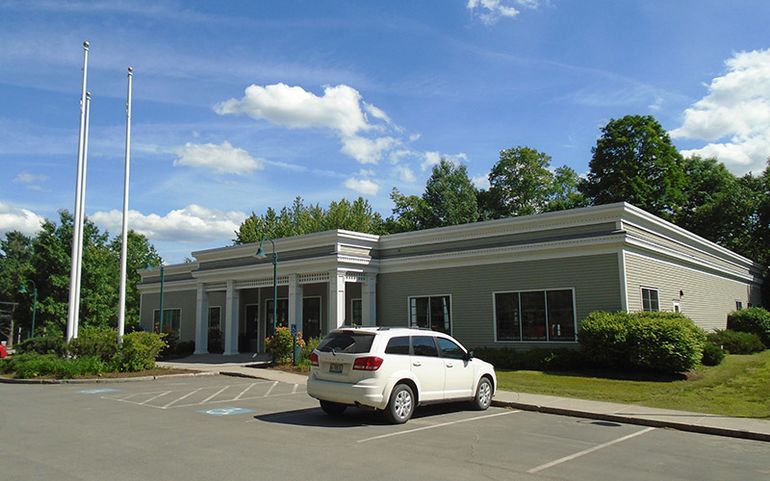UMaine to rehab Farmington office building for new child-care center
 Courtesy / The Boulos Co.
The University of Maine System’s purchase of 274 Front St. in Farmington will allow UMaine-Farmington to expand its Sweatt-Winter Early Care and Education Center.
Courtesy / The Boulos Co.
The University of Maine System’s purchase of 274 Front St. in Farmington will allow UMaine-Farmington to expand its Sweatt-Winter Early Care and Education Center.
The University of Maine System purchased a single-story, 10,384-square-foot office building at 274 Front St. in Farmington in order to consolidate and expand the University of Maine-Farmington’s Sweatt-Winter Early Care and Education Center.
The University of Maine System purchased the property from Greater Franklin Development Council for $849,000. Tim Millett of The Boulos Co. brokered the deal, which closed Feb. 1.
The Class A office building is commonly known as the Abbott Hill Business Center. It was originally built in 1999 for the credit card company MBNA Corp. Most recently, it was leased by NotifyMD as a call center.
NotifyMD’s lease ended Dec. 31.
“It worked out well that, when the building became vacant, the school came forward,” he said. “It’s a prominent corner that everyone knows.”
The 3.2-acre property is in a convenient downtown location and has expansive parking and high visibility.
More instructional space
Among its advantages, 274 Front St. features ample windows, an open-concept interior, up to 100 parking spaces and proximity to campus, according to a news release.
It’s more than twice the square footage of UMF’s current Sweatt-Winter space; that will mean more instructional space for enrolled children and for UMF’s early childhood education majors, who use Sweatt-Winter as a learning lab. The new site’s parking lot offers parents better traffic flow for drop-offs and pickups, away from the busy Main Street.
“It’s in excellent condition,” said Katherine Yardley, acting provost at UMF and a professor of early childhood education. It was also attractive because it’s across the street from a large park and fields bordering Sandy River.
“We incorporate nature-based education as one of our models,” she said. “So children will be able to do nature-based play and exploration. This property just made so much sense.”
Sweatt-Winter serves the community at large. As an educational opportunity, it also serves as a site for students to do their practicum and internships, Yardley said.
UMF has over 200 students enrolled in its early childhood programs. It places 12 practicum students at Sweatt-Winter each semester. Sweatt-Winter also employs 32 work-study students.
“We’re very excited about the opportunities this will offer for our students and for our community,” said Yardley.
The need for early childhood education is anticipated to grow, she said. The college is also exploring the possibility of consolidating infant/toddler playgroups, offered elsewhere on the campus, into the early childhood program, she said.
UMF covered the purchase cost by using a portion of the $8.5 million that came to it from a $49 million University Workforce Bond approved by Maine voters in November 2018. Renovation costs will come from the same source.
Sweatt-Winter has served the region’s young children and families for 30 years. According to the release, UMF had explored other options for renovating Sweatt-Winter or building a new location. But those prospects would have required additional funding from grants and philanthropic contributions, plus indeterminate time to raise financial support.
Purchasing and renovating the existing vacant building addressed many needs driving the decision to expand Sweatt-Winter. The purchase and upgrade are expected to cost at least $575,000 less than estimates for new construction or renovating Sweatt-Winter’s current site.
This summer, Yardley said, UMF will convene a building community to work through a “visioning process” for the new facility, to decide how to enhance and expand observation and field experience opportunities for early childhood and early childhood special education students. And UMF will conduct a needs assessment in the community, she said.
“Our goal is to ensure we’re adequately meeting the needs of the community and our students,” she said.
The goal is to be in the building by June 2020, she said.












0 Comments